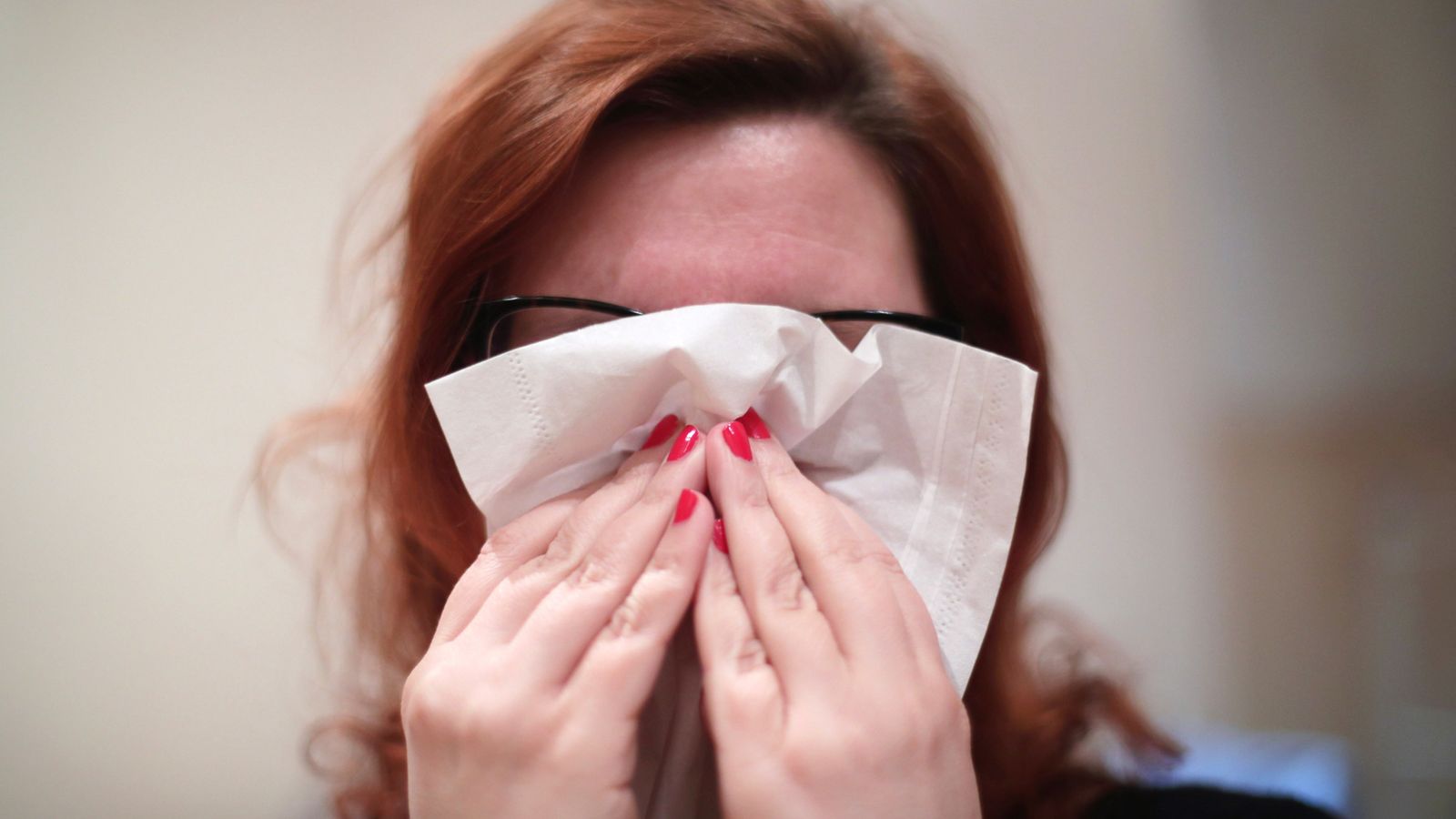“Particularly potent” pollen caused by recent warm and wet weather is causing worse-than-usual symptoms for hay fever sufferers, the Met Office has said.
The combination of damp and warm weather in May means that despite pollen counts being no higher than usual, the pollen itself is stronger, experts have said.
Yolanda Clewlow, the Met Office relationship manager for health and air quality, told the Met Office’s Weather Snap podcast: “The potency of these pollen grains could be more intense this year, and that comes down to the weather we’ve had in spring.
“A warm and wet May, coupled with a relatively warm spring, mean there’s a chance that the pollen that has developed is particularly potent.”
Grass pollen usually causes a spike in hay fever symptoms at the beginning of June and around the same time in July. This is due to around 150 types of grass pollen flowering simultaneously.
Sky News weather producer Joanna Robinson said Saturday’s grass pollen count was “very high”.
Allergy UK also warned against a new phenomenon – thunderstorm asthma – whereby asthma and hay fever sufferers suffer worse symptoms when the weather is turbulent.
UK weather: ‘Thunder fever’ warning as thunderstorms predicted to whip up ‘super pollen’
‘Unseasonably windy’ weather could bring gusts of 55mph to UK this week
Platinum Jubilee: What will the weather be like for celebrations?
During storms, more pollution and pollen are thrown up into the air and breathed in by people – making symptoms of both conditions worse.
The charity also said the pollen season is starting earlier and lasting longer due to climate change.
Storm Alex, which hit the US southern coast earlier this week, could result in further unsettled weather for the UK this weekend, but temperatures are predicted to stay high.







